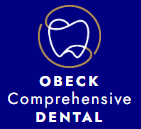To all of those who read this newsletter, thank you. I hope you find this monthly newsletter educational and interesting; perhaps it may even answer some questions about oral health that you may have been pondering. If you have any dental questions or topics you would like me to write about, please let me know!
This month I want to present a two-part guide that helps patients understand the various factors that cause tooth grinding (aka “bruxism”) and how this impacts the teeth, muscles, and jaw joint. In part one, I will break down the main reasons people clench their jaws and grind their teeth. In part two, I will discuss strategies to help treat patients’ bruxism and prevent unnecessary damage to the teeth and temporomandibular joint (“TMJ”).
First, it is important to understand that there are many different reasons that people clench their jaws and grind their teeth. Some people simply clench their jaws together without grinding their teeth and experience sore jaw muscles and TMJ symptoms without any wear on their teeth. Other people clench and grind their teeth together in their sleep or during the day and experience tooth wear, loose teeth, and TMJ symptoms. Bruxism is typically an involuntary, neuromuscular habit that patients do not consciously choose to do. Bruxism and clenching can be episodic or chronic. Finally, some people have parafunctional habits like nail biting or opening containers with their teeth that cause tooth wear. Unlike unconscious bruxism, some parafunctional habits can be broken.
Stress and Anxiety: Some people go through temporary periods of grinding when they are acutely stressed out about life events like studying for exams in college, transitioning between jobs, taking care of a sick loved one, or moving to a new state. Some people who suffer from anxiety disorders chronically clench and grind. There is not a clear scientific reason why people clench their jaws and grinding their teeth during periods of stress. Dr. Krist and I believe that stress related clenching and grinding is a neuromuscular physiologic response to the body being constantly in a “fight or flight” response, similar to a rapid heart rate and dilated pupils.
Medications: Some patients are surprised to find out that medications can cause people to brux their teeth. The two main classifications of drugs that are associated with bruxism are antidepressants and stimulants. The common antidepressants associated with bruxism are Selective Serotonin Re-uptake Inhibitors (SSRIs) which include Prozac, Zoloft, Celexa, Paxil, and Lexapro. The common stimulants associated with bruxism are amphetamines which include Adderall, Dexedrine, Evekeo, and Concerta. If you think that your medications may be causing you to clench and grind, please talk to your primary care physician or psychiatrist about possibly trying a new medication or cognitive behavior therapy. Finally, nicotine and alcohol, especially if consumed before bed, have been shown to disrupt our sleep cycles which can cause night time bruxism.
Sleep Apnea and Sleep Disordered Breathing: People suffering from sleep apnea and sleep disordered breathing (upper airway resistance) often brux their teeth. For more information on sleep apnea, please refer to my previous newsletter about “Sleep Apnea and the Dental Connection”. The body unconsciously bruxes in episodes of sleep apnea as a compensation mechanism to tighten up the neck muscles which open up the airway for easier breathing. If Dr. Krist or I see some of the oral clues and signs of sleep in our patients, we often suggest the patient have a sleep study to diagnose or rule out potential sleep apnea.
Misaligned Teeth (aka “Malocclusion): Some studies have shown that people with crooked or misaligned teeth unconsciously grind their teeth. This is a controversial topic among dentists, however, because not every person with misaligned teeth grinds or clenches their teeth. The predominant theory is that people with unstable bites grind their teeth as a means of wearing their teeth into a place of better stability. In general, people with misaligned teeth and unstable bites have a higher incidence of bruxism, jaw muscle pain, and TMJ symptoms.
Dr. Krist and I primarily focus on identify causes of bruxism in our patients, managing symptoms, and preventing unnecessary damage to the teeth and jaw joint. Hopefully, this guide serves you well as an educational primer to understand the various factors that contribute to the complicated topic of bruxism. Bruxism cannot be truly “cured”; but it can be successfully managed and treated with cooperative efforts from both the patient and the treating dentist. If you have any questions or concerns about bruxism or other oral health topics, please do not hesitate to reach out to Dr. Krist or I.
Sincerely,
Dr. John Obeck
